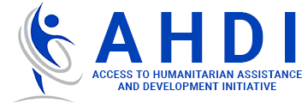World AIDS Day is an annual event observed every 1st day of December since 1988, dedicated to raising awareness on the AIDS pandemic.
World Aids day is an international health day set aside by the United Nations and observed by its member states to create awareness on the causes, prevention and control of Human Immunodeficiency Virus (HIV) and Acquired Immune Deficiency Syndrome (AIDS). The theme for this year is “Know Your Status“.
HIV is the virus that causes AIDS, a life threatening disease and it is one of the greatest health challenges existing in the world. HIV damages the immune system of its victim by destroying the white blood cells which helps in fighting against diseases in the body.
Nigeria has the second largest HIV epidemic in the world. In Nigeria, there are a lot of people faced with this health challenge, some are aware of their status thereby making it easier to control the disease and support them live normal life while others that are ignorant of their status may not have access to such life stabilizing opportunity. About 3.1 million people are living with HIV in Nigeria (UNAIDS)
CHILDREN, YOUTHS AND HIV IN NIGERIA
In 2018, new cases of the HIV infection was found; about 36,000 cases of children (0-14 years), 28,000 cases of adolescent females (10-19 years), 19,000 cases of adolescent males (10-19 years), 45,000 cases of young female (15-24 years) and 38,000 cases of young males (15-24 years). About 150,000 persons have so far in 2018 died from AIDS. (UNAIDS).
HIV can be transmitted through; intercourse, contact with infected blood, infected mother to child during pregnancy, childbirth or breast-feeding and sharing of needles. Without medication, the virus weakens the immune system of its victims, a situation leading to AIDS.
The number of people that are committed to checking their HIV status needs to improve. The national 2020 targets is 90% treatment coverage and 50% testing rate among young people. (National HIV Strategy for Adolescents and Young People). We need to come together to make these strategic plans reality.
Creating awareness on the causes, prevention and control of the disease in public places such as schools, churches, mosques and several related platforms is of utmost importance and it is first step towards curbing the spread of HIV/AIDS. It is for this reason that the federal government of Nigeria initiated the National Strategic Framework (NSF) on HIV/AIDS: 2017-2021 to fast-track the national response towards ending AIDS in Nigeria by 2030. This is a framework that subscribes to the UN’s 90-90-90 strategy; Test and Treat, Sustainable Development Goal 3 and the Option B+ model for elimination of mother-to-child transmission.
Access to Humanitarian Assistance and Development Initiative (AHDI) is also supporting to achieve SDG 3 and 90-90-90 strategy through its active projects such as its Media Initiative for Children (MI4C). Through this initiative, children will be able to sensitize and educate the public, disseminate important facts and information, and create awareness on the challenges and effects of HIV/AIDS as well as the importance of knowing one’s status on time.
Through the “School Infrastructure Improvement Programme” (SIIP), the infrastructural gaps in educational institutions that hinders children from going to school will be bridged and improved thus providing conducive learning environment for children. Once children have conducive learning environment, they will be encouraged to go to school and be well educated at early age on the challenges and current issues on HIV/AIDS and other global health agendas.
Also, the “Stay In School Initiative” (SISI) helps in making children remain in school, access quality education and improve their educational performance through provision of grants that will cater for student’s fees, books, uniforms and other essential educational materials. As we continue to activate initiatives with outcomes that leads to significant rise in the number of in-school children who are educated and well informed about health and their environments, there would be decline in the exposure to and effect of health challenges including HIV/AIDS.
This year’s theme is know-your-status. Therefore, the foremost agenda is to promote and sensitize everyone on the importance of knowing one’s status as a major step to the prevention and control of HIV/AIDS. An individual tested can either be positive or negative, being positive isn’t the end of the world because it can be controlled with medication. Starting the right treatment early will help an infected person live a normal life.
In summary, knowing your status early will help in reducing death rate caused by AIDS.
We rely on your support to continue scaling these initiatives.
